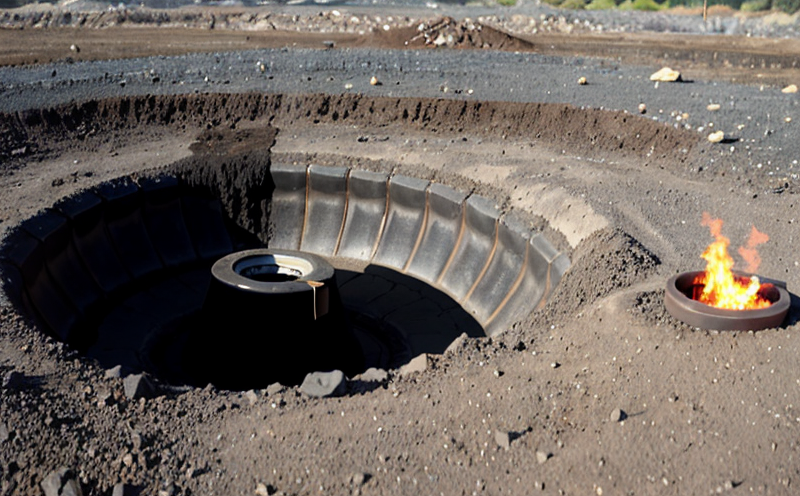ASTM D5865 Gross Calorific Value of Coal Testing
The ASTM D5865 standard method is a critical procedure used to determine the gross calorific value (GCV) or higher heating value (HHV) of coal. This test plays an essential role in ensuring compliance with international and national standards, providing accurate measurement for quality control, and supporting decision-making processes within the mining sector.
The gross calorific value is a measure of the heat released when a unit mass of fuel burns completely under standard conditions. In the context of coal, this parameter is vital as it directly influences the economic evaluation of the fuel, its suitability for specific applications such as power generation or industrial heating, and overall operational efficiency.
The ASTM D5865 method involves a calorimeter that measures the heat released during combustion of a known mass of coal in oxygen. The accuracy of this test is paramount because it affects pricing mechanisms between mining companies and their clients, influencing contracts, and ultimately impacting profitability.
When conducting ASTM D5865 tests, it's important to ensure proper sample preparation. The coal samples must be homogenized to achieve a representative mix that reflects the overall characteristics of the batch being tested. This process involves sieving, drying at specific temperatures, and possibly grinding if necessary. Once prepared, these samples are ignited in a bomb calorimeter under controlled conditions. The subsequent measurement of the temperature rise provides the basis for calculating the GCV.
The results from ASTM D5865 testing are used to assess various aspects of coal quality including its energy content, which is crucial for optimizing processes like combustion efficiency or carbon emissions calculations. This information is also vital for compliance with environmental regulations and can help in identifying any issues that might arise during mining operations.
The precision and accuracy of ASTM D5865 tests are ensured through rigorous calibration procedures and adherence to strict guidelines provided by the ASTM standard. These measures guarantee reliable data that can be trusted across different industries relying on coal as a primary energy source. By employing this standardized testing method, stakeholders in both mining companies and their clients benefit from consistent results, fostering trust and reliability within supply chains.
In conclusion, the ASTM D5865 Gross Calorific Value of Coal Testing is not just another laboratory procedure; it represents a cornerstone practice ensuring quality assurance and regulatory compliance. Its significance cannot be overstated in today's competitive market where every detail counts towards maintaining high standards of production and sustainability.
Why It Matters
The ASTM D5865 Gross Calorific Value test is essential for several reasons, particularly within the mining industry. Accurate GCV measurements are crucial not only for financial transactions but also for operational efficiency and environmental considerations.
- Economic Impact: Precise determination of coal's calorific value ensures fair pricing between suppliers and buyers, reducing disputes over contract terms.
- Operational Efficiency: Knowing the exact GCV helps in optimizing combustion processes, leading to better utilization of resources and reduced waste.
- Environmental Compliance: Understanding the true energy content allows for more accurate calculation of CO2 emissions, aiding compliance with environmental regulations.
A reliable ASTM D5865 test provides miners and users alike with confidence in their product's quality, enhancing reputation and market position. It ensures that all parties involved understand the exact characteristics of the coal being traded or used.
Why Choose This Test
Selecting ASTM D5865 for determining the gross calorific value offers numerous advantages over other methods:
- Accurate Results: The standardized procedure ensures consistent and reliable outcomes, crucial for both internal quality control and external audits.
- Regulatory Compliance: Adherence to ASTM standards guarantees that all tests meet international requirements, reducing the risk of non-compliance penalties.
- Credibility: Using recognized methods like ASTM D5865 enhances credibility among stakeholders, including clients, regulators, and investors.
- Trusted by Industry Leaders: Many leading mining companies and fuel suppliers rely on ASTM D5865 for their calorific value determinations due to its established reputation.
In summary, choosing ASTM D5865 ensures that your coal testing aligns with the highest industry standards, providing accurate data essential for informed decision-making across various sectors of the mining and energy industries.





